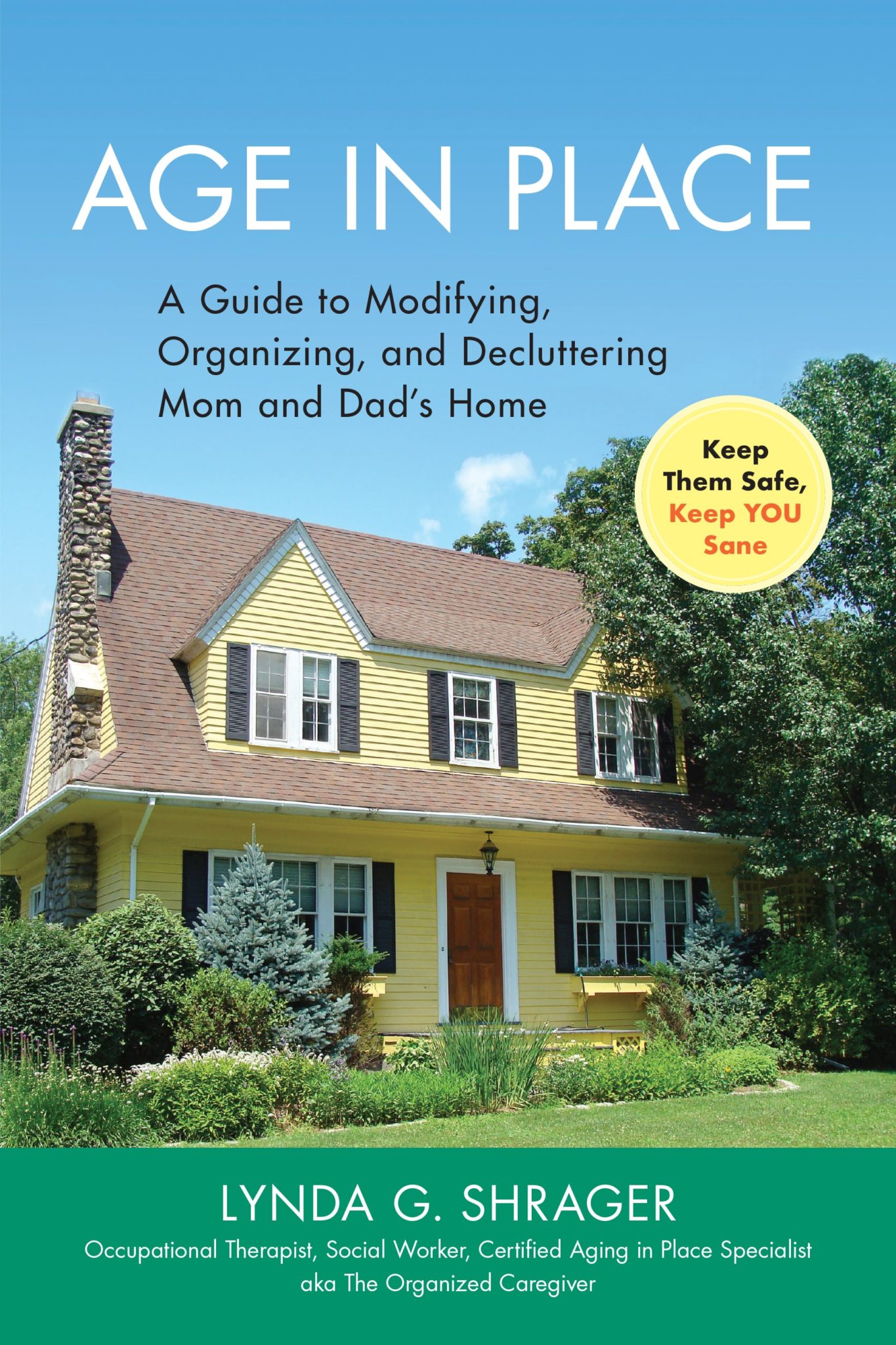Caring for Aging Parents Long Distance
 Caring for Aging Parents Long Distance
Caring for Aging Parents Long Distance
By Lynda Shrager
Just when we Baby Boomers thought our parents were happily ensconced in their retirement community, we get the call that so many adult children dread. Dad has been rushed to the hospital with chest pains. Before this call comes, we need to organize and plan ahead. This means generating a plan based on potential emergencies and addressing all aspects of caregiving, including successful long-distance caregiving.
As we Baby Boomers age, we’re called on more and more to deal with parents whose physical or mental abilities are declining. According to a National Alliance for Caregiving Survey, one in four households are involved in eldercare, with a large percentage providing care for someone who lives at least an hour away. But whether your parents live around the corner or thousands of miles away, minutes count in an emergency and getting help could make the difference between life and death. How can this be accomplished if you do live far away?
Have “The Talk”
Hopefully you’ve had “the talk” with your parents to ascertain their wishes for the future. My mantra is to organize and plan ahead, and that means addressing all aspects of caregiving, including successful long-distance caregiving. One of the outcomes you’ll want to achieve when you’re having the discussion with your elder parents is to determine what they’d want done for them in a medical emergency. Encourage them to fill out advanced directives, including a Health Care Proxy and Living Will. Copies should be distributed to their primary doctor, lawyer and chosen health care agent.
Think of potential emergencies that might arise and generate a contingency plan. Actually role-play what they would do if, for example, someone fell. What steps would they take to get help? Who would they call first?
Use the following tips to help simplify long distance caregiving:
-
Create health care notebooks.
Assemble two identical notebooks — one for them and one to keep at your house — that include information such as their medical history, medication list with dosages, copies of test results, blood work, and insurance information. Also, record their doctor’s detailed contact information and don’t forget after hours/emergency phone numbers. Place your parents’ notebook in a “grab and go” location and let everyone know where that is. Be sure to keep the notebooks updated.
-
Schedule your parents’ medical exams to coincide with your visits.
This task can become much more tolerable if your parents are in the southern part of the country and you’re in the cold North! Accompany them on doctor’s visits so that you can meet and become familiar with your their medical team and staff. Importantly, be sure when they fill out HIPAA forms to include your name as a person who should be considered privy to their medical information. The medical staff can’t talk to you without such authorization. As you’re pacing in the airport waiting to board a flight out and trying to get a medical update on dad over the phone, this isn’t the time to find out you’re not listed on his HIPPA forms.
-
Keep emergency numbers close at hand.
Help mom and dad create an emergency list containing phone numbers for local ambulance companies, fire, police, and hospital emergency rooms, and post it in a prominent place. Both of you should have that list, plus contact information of all family, friends and neighbors who live close enough to get to them quickly. Your contact information, and that of any other key players, should be on this list. Keep it accessible at all times (don’t forget to have a copy at work), and make sure to keep the various contacts updated.
-
Engage a check-in service.
One of the best ways to keep an eye on someone who lives far away is to put in place some type of check-in system. Options include a telephone reassurance program where a call is made daily to check on a person’s well-being. If there’s no contact after a few attempts, phone calls will be made to designated people who can check on the person. Eventually it will go to emergency responders if no one can be contacted. Search “phone check-in systems for seniors” on the web to find several options and prices. Also, under the Carrier Alert Program, a local sponsoring social service agency will notify the post office of customers wanting to participate. A sticker is placed inside the mailbox and, if the mail starts to accumulate, the letter carrier notifies the appropriate people. To find out if there’s a program in place where your parents live, contact the National Association of Letter Carriers (NALC) or the local post office.
-
Ensure access.
In order to have 24/7 access to your parents’ home, create duplicate house keys, plastic access cards, electronic door openers, and combinations to any locks. Label keys and be sure to distribute copies to designated friends and family. If your parents have voicemail on the telephone and email on the computer, learn their access codes and passwords so you can retrieve messages. Last but not least, ask for their passwords for various online sites and bank accounts so you can monitor their finances should they became unable to do so.
 Lynda Shrager, OTR, MSW, CAPS is the author of Age In Place: A Guide to Modifying, Organizing, and Decluttering Mom and Dad’s Home (Bull Publishing, April 4, 2018). Her newspaper column, Mom’s RX, has appeared in countless newspapers across the country, and she is a featured columnist for Everyday Health, one of the country’s leading online consumer health websites. Lynda has practiced in the medical field of geriatric rehabilitation for more than 37 years, focusing on all aspects of senior health and wellness. She combines her expertise as an occupational therapist, a Master’s level social worker, professional organizer and certified aging in place specialist to pursue her passion of providing therapeutic care in the patient’s home environment and in educating their caregivers. Learn more at otherwisehealthy.com.
Lynda Shrager, OTR, MSW, CAPS is the author of Age In Place: A Guide to Modifying, Organizing, and Decluttering Mom and Dad’s Home (Bull Publishing, April 4, 2018). Her newspaper column, Mom’s RX, has appeared in countless newspapers across the country, and she is a featured columnist for Everyday Health, one of the country’s leading online consumer health websites. Lynda has practiced in the medical field of geriatric rehabilitation for more than 37 years, focusing on all aspects of senior health and wellness. She combines her expertise as an occupational therapist, a Master’s level social worker, professional organizer and certified aging in place specialist to pursue her passion of providing therapeutic care in the patient’s home environment and in educating their caregivers. Learn more at otherwisehealthy.com.




































